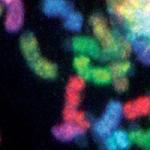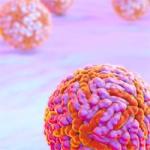
Research Topics
Cancer is characterized by major transcriptional and epigenetic changes not only in the cancer cells but also in other cell types that jointly constitute the tumor microenvironment (TME). The cancer phenotype is ultimately a result of dynamically changing interactions between various cell types. While much of the focus of research in oncogenesis, metastasis, drug resistance and relapse has been on protein-coding mutations, a growing body of literature clearly points to an alternate mechanism centered on transcription heterogeneity and cellular plasticity that sets the stage for oncogenesis. Broadly, cancers hijack several developmental and homeostatic processes for proliferation, immune evasion, and therapy resistance. Precise molecular links between cancer and the developmental/homeostatic processes is of great interest. Further complicating functional investigation of cancers is that the very notion of a gene’s or a cell’s function may be highly context-specific and the knowledge of context-specific functions is highly incomplete. The research in the Hannenhalli lab is broadly focused on Cancer Gene Regulation, and is organized into four broad areas.
Studying transcriptional heterogeneity, cellular plasticity, and regulatory mechanisms underlying oncogenesis, metastasis, and therapy response. While coding mutations remain a dominant focus in cancer research, mutations do not entirely explain OMR. Transcriptional/epigenetic heterogeneity among clonal cells and their differential response to external stimuli and microenvironment present a potent complementary mechanism. Several projects in the lab aim to better characterize transcriptional heterogeneity in the tissue microenvironment underlying oncogenesis, metastasis, and therapy response, the underlying gene regulatory mechanisms, and attempt to modulate the microenvironment (Gopalan et al. Cancer Res 2021, Olgun et al. iScience, Sambaturu et al. Bioinformatics 2021, Agrawal et al. Frontiers in Immunology 2022).
Developmental and homeostatic origins of cancer. Parallels between embryonic/fetal development and cancer in terms of coarse morphological features were noted over a century ago, and more recently similarities in terms of broad cancer hallmarks (EMT, proliferation, immune suppression, etc.) have been made. Likewise, there are well recognized functional links between cancer and several homeostatic processes such as stress response, wound healing, and regeneration. We aim to advance the understanding of these links in terms of specific molecular features, processes, and cell states (Singh et al. Nat Comm 2022, Gopalan et al. bioRxiv).
Identifying functional non-coding mutations and polymorphisms underlying cancer. Another limitation of mutation-centric investigation is the almost exclusive focus on protein-coding mutations, despite the fact that the vast majority of mutations reside in the non-coding portion of the genome, many of which likely have critical gene regulatory roles. To fill this gap, we are developing deep learning models to identify functional non-coding mutations (Li et al. Sc Adv 2023) underlying cancer initiation and progression, as well as non-coding polymorphisms underlying inter-population differences in cancer incidence.
Intrinsic and extrinsic context-specific functionality of genes and cells. Functional annotations of genes are woefully incomplete and mostly devoid of context. Moreover, a gene can perform different functions depending on cellular/tissue/regulatory contexts (e.g., both loss and gain of function mutations of P53 can be tumor-promoting and classical oncogenic mutations are highly cancer-specific). These notions can be extended to cell types as well (e.g. myeloid cells can be pro-tumor or anti-tumor depending on their state). Even the highly studied concept of synthetic-lethality can be framed as context-specific gene function). Several projects in the lab aim to contextualize genetic and cellular functions in cancer biology (Somepalli et al. PLoS Comp Bio 2021, Magen et al. Cell Reports 2019, Wang et al. PLoS Genetics 2021).
Overall, these diverse projects, through analysis of multi-modal bulk and single cell data, promise to advance our understanding of gene regulatory landscape and mechanisms underlying oncogenesis, metastasis, and therapy response. We are a purely dry lab with expertise in computational and statistical methods, machine learning, and analysis of a variety of high-throughput omics data. Besides pursuing our specific biological interests, we are also committed to resource and tool building to aid others as well as collaborative team science.
Biography
Dr. Hannenhalli obtained a B. Tech from the Indian Institute of Technology (1990) and his Ph.D. in Computer Science from the Pennsylvania State University (1995). After a postdoctoral fellowship at the University of Southern California (1996-1997), he worked as a Senior Scientist at Glaxo Smith-Kline (1997-2000) and then at Celera Genomics (2000-2003), where he was involved in the work reporting the first human genome sequence. He was a faculty member in the Department of Genetics at the University of Pennsylvania (2003-2010), and then at the University of Maryland (2010-2019). Dr. Hannenhalli served as Interim Director of the Center for Bioinformatics and Computational Biology, and the director of Computational Biology Ph.D. program at UMD. He was a Fulbright Scholar (2017-2018) and was a visiting faculty at the Indian Institute of Sciences, and National Center for Biological Sciences. Since 2019 he has been the head of Gene regulation section in the Cancer Data Science Lab at the NCI. The Hannenhalli lab is broadly interested in developing computational approaches harnessing multi-omics data to understand regulatory underpinning of cancer.
Related Scientific Focus Areas
This page was last updated on Tuesday, December 16, 2025




